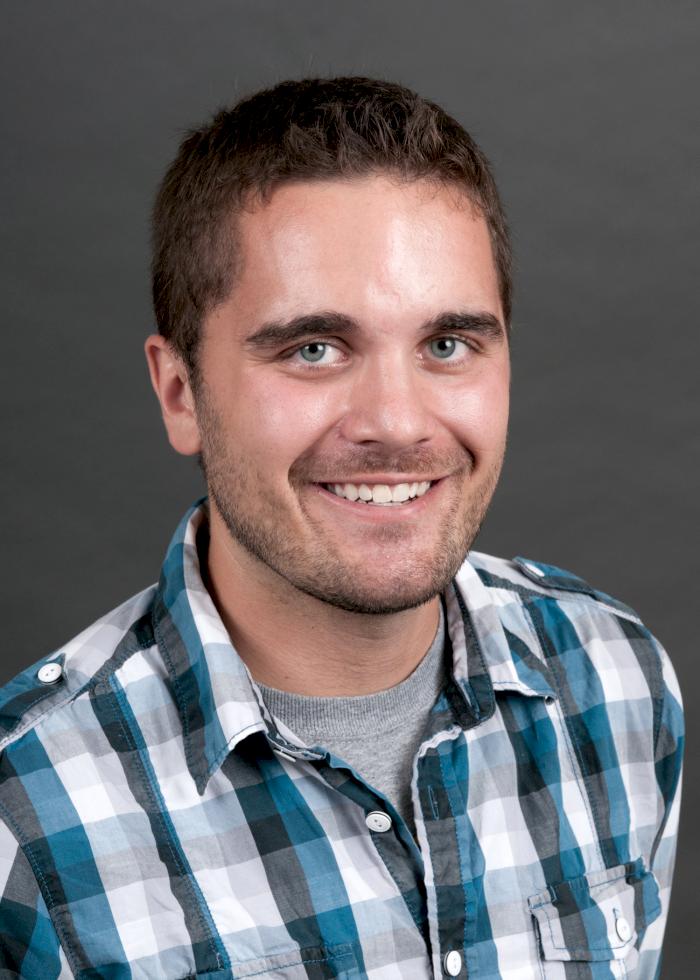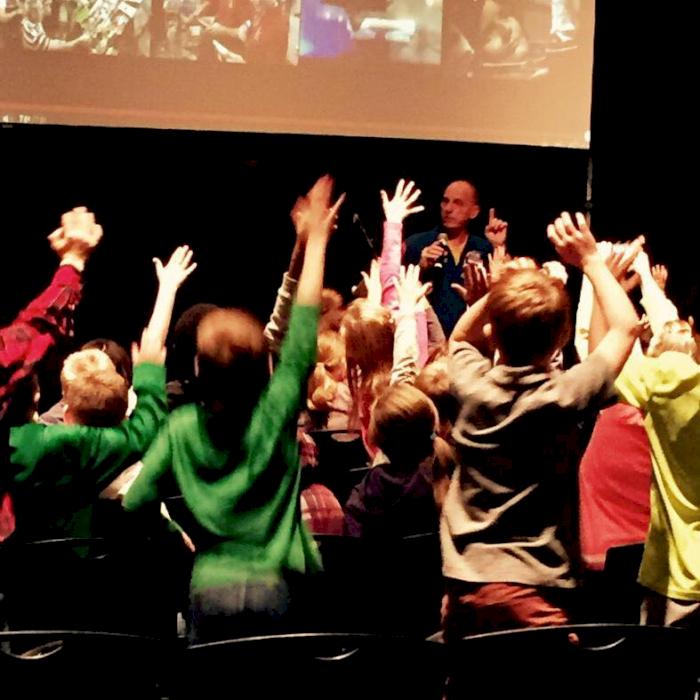Abroad experiences provide perspective for improving public health in Iowa
- Wednesday March 25 2015
- General SCI
Marcus Barlow vividly remembers his first science experience: second-grade pig-eye dissection. Barlow marveled at the eye’s sensory power despite its small size. That moment, he realized science isn’t limited to the laboratory — it’s the guiding force in our everyday lives.
A second-grade anatomy lesson led Barlow to question everything and explore the science of his world. Volunteer experiences in Africa further strengthened his inquisitive spirit and ultimately led to a career in public health.
Though he now works as program coordinator at Integrated Health Homes at Child Health Specialty Clinics, Barlow hasn’t forgotten that formative experience at the second-grade anatomy table. Every day, he applies that same curiosity in tackling the complicated, nuanced problems facing Iowa’s public health systems.
SCI: What drew you to science growing up?
MB: My first science experience was in second grade. I can remember dissecting pig eyes, actually. I remember being captivated by the small number of parts that make up the eye and their ability to create the images we see. That was the first time I got excited about looking at things with a scientific lens and trying to understand what was happening around me.
I took more and more science classes all the way up into high school, where I can remember anatomy, again. We were dissecting cats, and in chemistry, we were taking the copper off of pennies. I learned to dig a little deeper and not just take things at the surface level. I began to ask questions, like why we can stop our car at the stoplight or why we burp and why we have hiccups. That created an idea in my head that I wanted to do something in science. I wasn’t quite sure what. On top of that, I really enjoy the social sciences as well. I enjoy people. I enjoy interacting with people. I wanted the merger of both of those things, which got me into the health sciences eventually.
SCI: Was there a specific moment you realized public health was the right field for you?
MB: It was definitely not my focus during my undergraduate studies. I didn’t know that there was a master’s of public health at all. I eventually went to study abroad in Africa for the first time, and it was in Tanzania for six months. While I was there, I was volunteering for a non-governmental organization called Guidance and Health-Based Care. I saw there were a lot of systematic problems. The Tanzanian government provides medications for people to get well, called anti-retroviral medication. But on the flipside of that, these people didn’t have enough food, and when you don’t have that food in your system, the medicine can’t do its job. So, it’s actually hurting people instead of helping them get better. There were large systematic problems in that society that created the negative health outcome.
Another experience that I had was in Downtown Denver when I volunteered for homeless youth with AmeriCorps. I saw there were a lot of problems with drug abuse, drug paraphernalia and different factors that were making the youth, first off, feel uncomfortable getting the help they needed, but also feel ashamed and criminalized because of their addictions and other problems they were facing. It really came down to the fact that they just had a terrible start to their lives that snowballed into a larger, negative health problems. Those two items kind of got me thinking, “I need to go back and take a look at these larger systems that we have in the world and why we’re seeing really bad health outcomes because of them.”
SCI: Can you describe your work as program coordinator at Integrated Health Homes at Child Health Specialty Clinics?
MB: I work on Pella Health programs, and I also work on another program that’s called the Child and Youth Health Psychiatric Consultation of Iowa. It consults with primary care physicians to provide mental healthcare. We’re making sure primary care providers are able to diagnose mental health conditions in the state of Iowa. One in five children has mental health issues in the state of Iowa, and that statistic is the same nationally. We have numerous shortages and issues in child psychiatry. We want to keep people in their homes, we want to keep them where they’re at with their primary care physicians. That is kind of what I discussed earlier with the systematic, big problems that I saw in my travels. There are really big issues here in Iowa, too. We have a lot of systems that are becoming a problem. They’re creating some hard health outcomes.
SCI: What’s one challenging aspect of working in public health?
MB: Tom Harkin has said several times that, “Public health’s greatest enemy is that when it works, you don’t hear about it.” For instance, when we don’t have a measles outbreak like we’re seeing in Germany and Florida, public health is working, but no one knows it. That is the biggest enemy of public health.
SCI: What’s the most rewarding thing about working in public health?
MB: I think a lot of times, people seek jobs or opportunities that when you go home at the end of the day, you feel like, “You know what, today I feel like I made a difference in the world,” and I know that sounds really cliché and corny, but I really feel that way because you can see it in patient outcomes and data. For instance, I know if I am doing my job and I am making sure that everything is coordinated in the Pella Health program, I can know a child out there in Mason City or Storm Lake got the services they needed to improve their health and their lives. That’s really rewarding when you hear things like that — when you can see patients are getting the things they need. Health is so all-encompassing on quality of life.


